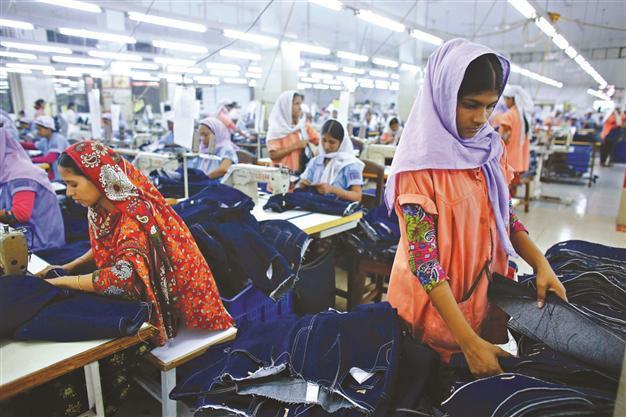Women still face inequality, need spouse’s okay to work, says report
ISTANBUL

Many countries have underwent reforms related to gender inequality in the recent years, with over two dozen economies curtailing a man’s right to legally restrict their wives from working since the 1960s, according to a World Bank report. REUTERS photo
Men in 15 countries worldwide have the right to object to their wives working and prevent them from attaining work in legal terms, according to a recent gender inequality report released by the World Bank.In Guinea, for example, a husband may object to his wife’s employment if his objection is based on the interests of the family. A wife can go to court and have her husband’s objection overturned, but must prove to the court that his objection is unjustified, according to the report.
The report, detailing gender inequality in the legal and business worlds, states that even though 15 economies still maintain such regulations, over two dozen economies since the 1960s have advanced by way of curtailing a man’s right to legally restrict their wives from working, including countries like Indonesia and Morocco. In the last two years, Côte d’Ivoire, Mali and Ghana also reformed their laws accordingly.
Côte d’Ivoire, Mali, the Philippines and Slovakia have been named as countries where the most reforms have occurred in recent years.
The report further shows that 90 percent of the world’s 143 economies have at least one legal variation in terms of economic opportunities available to them, in comparison to men from the same nations. Some 28 of those economies have at least 10 legal variations for men and women in the world of business, and 25 of those are countries in the Middle East, North Africa and Sub-Saharan Africa.
Types of work
Approximately 79 countries at present constitutionally limit the kinds of jobs that women can be employed in, with the most instances of such restrictions in Eastern Europe and Central Asia. Such practices can negatively impact upon companies and the competitiveness of the overall economy, and result decreasing the female labor force participation rate, the report said.
Russia currently bars women from working in over 450 jobs, including driving trucks, freight trains, working as a deckhand on ships or using cranes for loading grain, cement and coal. Belarus bans women from 252 jobs, whereas Kazakhstan has 299 jobs that female workers are barred from.
On the other hand, certain advantages that women possess can also negatively affect the work force, according to the report, like long paid maternity and parental leave; however, policies that encourage women to join and remain in the labor force usually do not tend to offer income equal to their male counterparts.
The report further shows that 19 economies have constitutional courts or court-like bodies where women are not represented.
Japan women 'desperate' to be housewives
The poll, which quizzed more than 3,000 people aged 15-39, found 34 percent of unmarried women did not want to work when they settled down. The survey, by the Health, Labor and Welfare Ministry, found that only a slightly higher proportion of women actively did not want to become dedicated home-makers (38 percent), while the rest had no firm opinion either way. However, potential husbands were on the whole less keen on the idea, with only one in five saying they wanted a future wife to stay at home all day. Despite high levels of education, many women in Japan drop out of the workforce when they have children, and social pressures to play the homemaker remain strong. Experts have argued that women could rescue Japan’s chronically underperforming economy if more of them went to work.
















